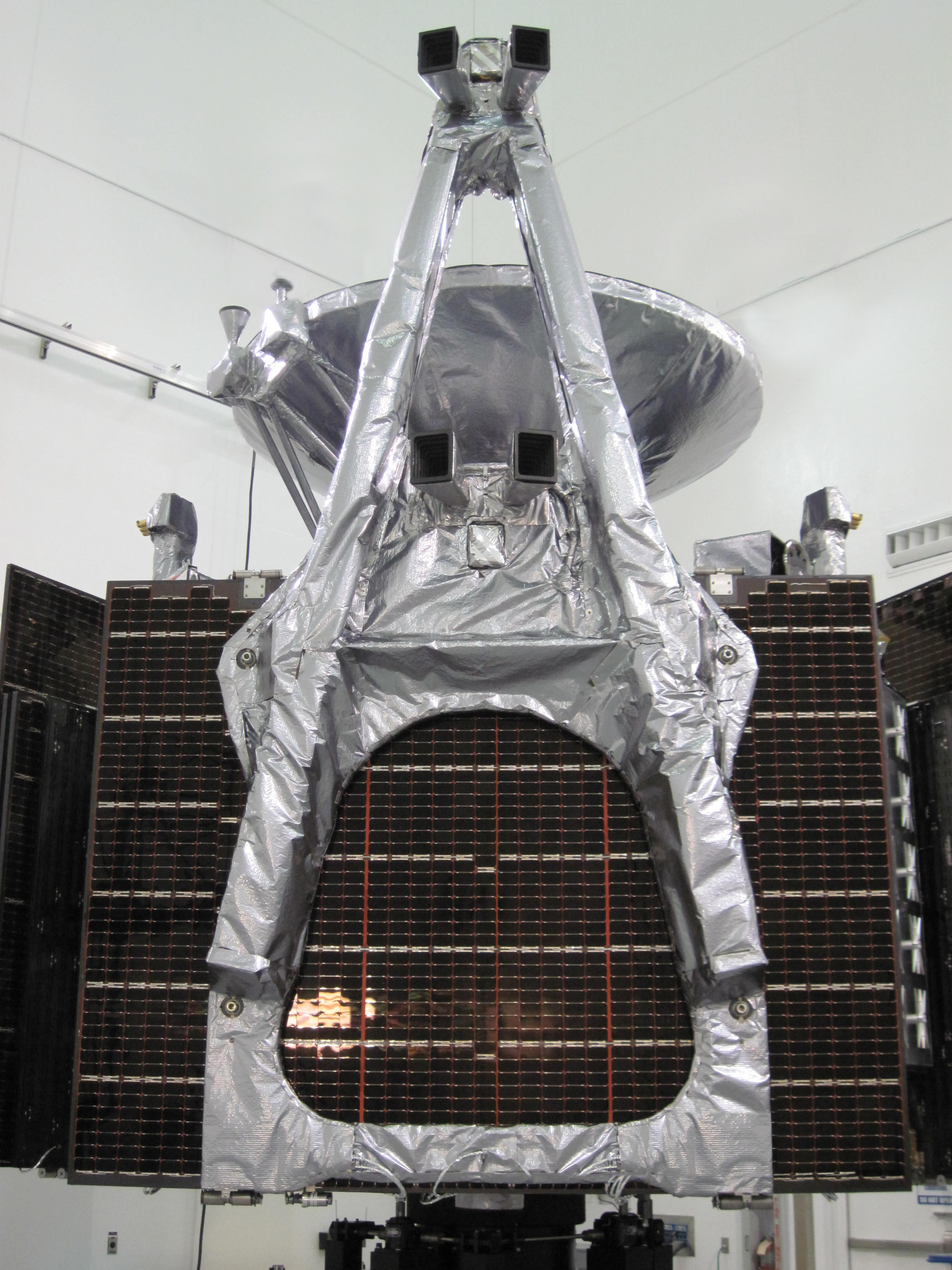
Juno Magnetic Field Investigation
JOI: 4 July 2016 (day-of-year 186)
FGM Turn on: 23 August 2011 (day-of-year 235)
ASC Turn on: 25 August 2011 (day-of-year 237)
Juno launch: 5 August 2011 (day-of-year 217)

JPEG (1.3 Mb)
The Kennedy Media Gallery has pictures of the pre-launch and launch activities at the Astrotech payload processing facility in Titusville, Florida and the Cape Canaveral Air Force Station in Florida. Juno launched on the 5th of August 2011 (doy of year 217) at 12:25 p.m. EDT.
Mission
The Juno magnetic fields investigation will provide measurements of the Jovian magnetic field over a wide dynamic range. The fundamental objectives of this investigation are to
- map the magnetic field,
- determine the dynamics of Jupiter's interior, and
- determine the three-dimensional structure of the polar magnetosphere and its auroras.
How
The magnetic field experiment's sensors are Fluxgate Magnetometers. An Advanced Stellar Compass (ASC) will provide accurate information about the Juno spacecraft pointing for precise mapping.News
Juno ASC Earth Fly By movie
For more information about Juno, please visit
- Privacy Policy and Important Notices.
- Last Modified: 22 January 2025
- NASA Official: Ron Oliversen
- Email: Ronald.J.Oliversen@nasa.gov
- Curator: Ever Guandique, ADNET Systems, Inc.
- Email: ever.guandique@nasa.gov